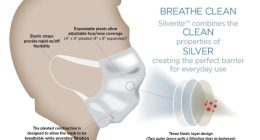NASA has granted three more missions — Crew-7, Crew-8, and Crew-9 — to SpaceX as part of its Commercial Human Transportation Capability (CCtCap) contract for crew transportation services to the International Space Station (ISS). This takes the space agency’s total number of crewed missions to the ISS to nine, including the three successful operational trips over the last two years. The original $2.6-billion (roughly Rs. 19,700 crore) contract was awarded to SpaceX in 2014 for the development of American crewed launch capabilities.
The timing of the announcement is also significant. While NASA made no mention of Russia’s invasion of Ukraine — and the resulting breakdown in international space ties — the latest development appears to show that the space agency is aiming to rely on American-made rockets for the foreseeable future.
According to a NASA statement, these three new missions take SpaceX’s total CCtCap contract to $3.49 billion (roughly Rs 26,409 crore).
The statement adds that the extension is “fixed-price, indefinite-delivery/indefinite-quantity”. With this, SpaceX’s “period of performance runs through March 31, 2028”.
As part of NASA’s Commercial Crew Program, CCtCap contracts were awarded to Boeing and SpaceX in 2014. Prior to flying missions with humans, NASA ensures that a provider’s space transportation system meets the agency’s standards under CCtCap.
In November 2020, NASA certified SpaceX for crew transportation. Its third crew rotation mission for the agency is now in orbit. SpaceX’s Crew Dragon spacecraft and Falcon 9 rocket transport up to four astronauts and crucial cargo to the ISS as part of the missions.
After the Space Shuttle was retired in 2011, NASA had no choice but to rely on Russian-made Soyuz spacecraft to transport humans to and from the ISS. However, beginning in 2020, SpaceX’s Crew Dragon spacecraft has allowed NASA to launch astronauts to the ISS from American soil, reducing the space agency’s reliance on Russia. During three operational missions and one crewed test flight, SpaceX has successfully transported humans to the ISS. As a result of the new deal, SpaceX will be able to launch astronauts at least six more times.
For details of the latest Nokia, Samsung, Lenovo, and other product launches from the Mobile World Congress in Barcelona, visit our MWC 2022 hub.






